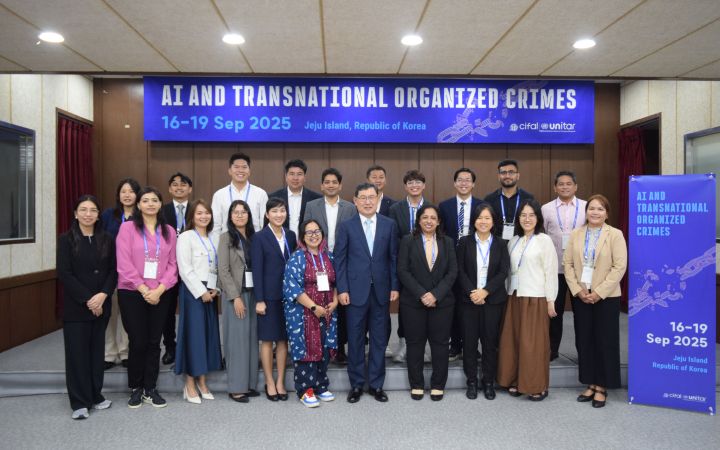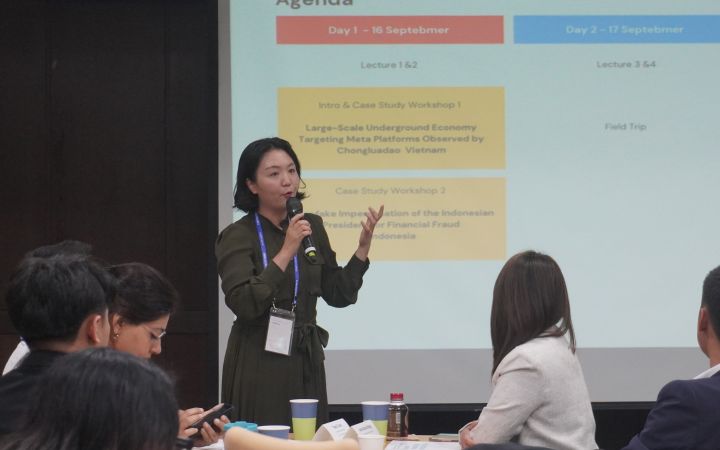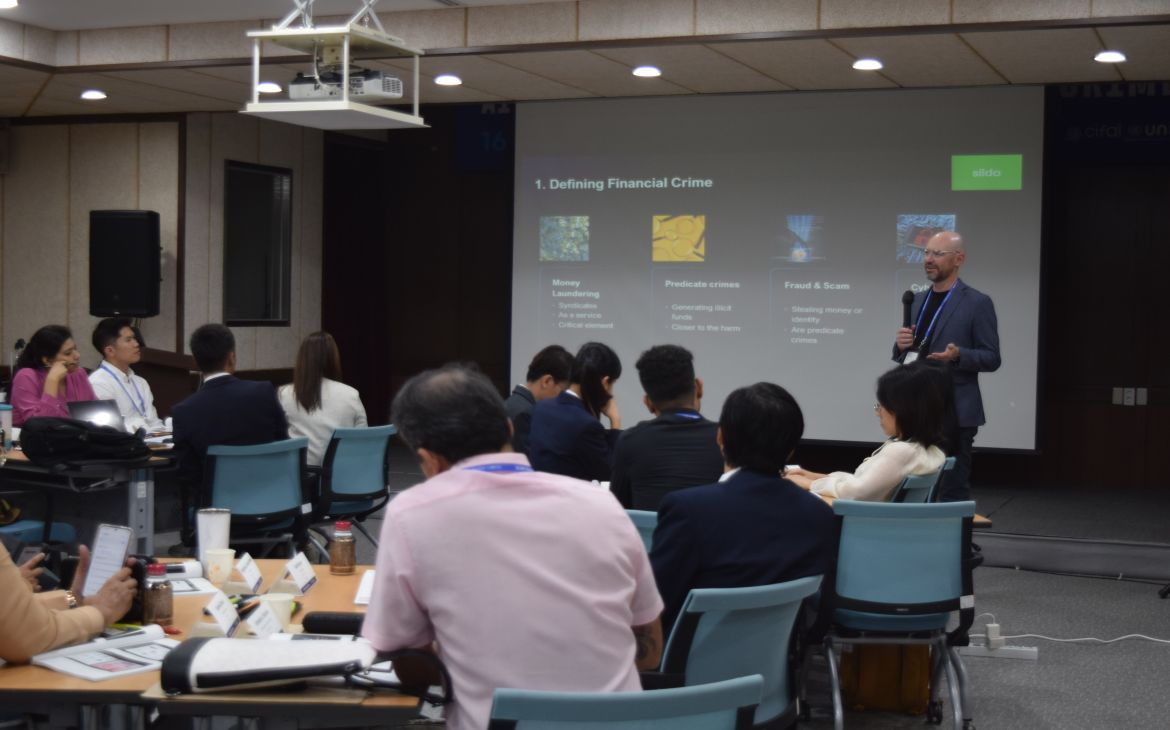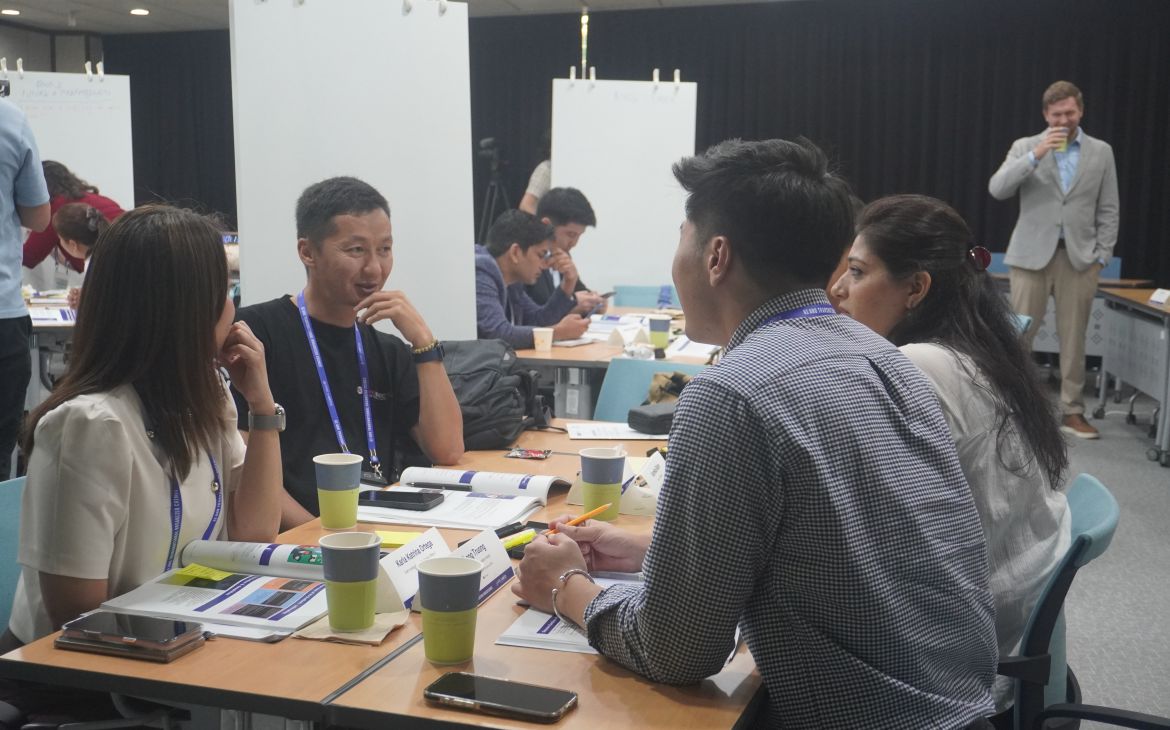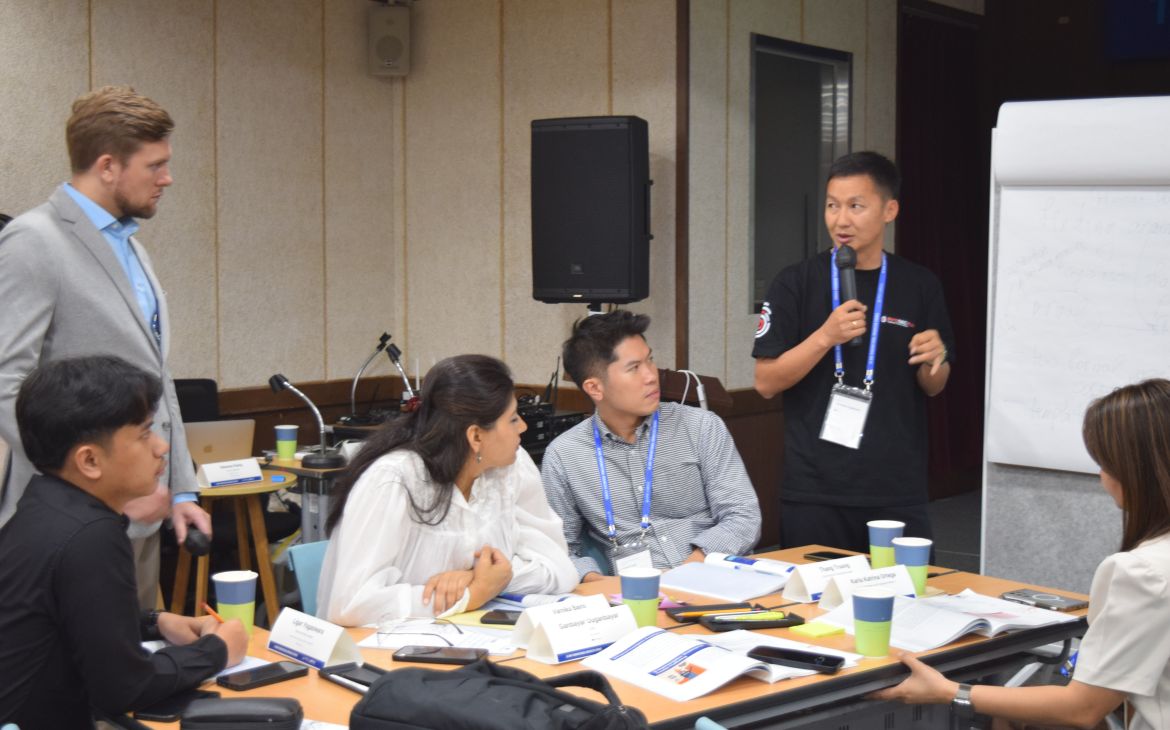10 November 2025, Jeju, Republic of Korea – The International Training Centre for Authorities and Leaders in the Republic of Korea (CIFAL Jeju), an affiliated training centre of UNITAR, successfully organized a four-day workshop from 16-19 September on “AI and Transnational Organized Crimes.”
The workshop brought together policymakers, law enforcement officials, cybersecurity experts, and representatives from civil society across the Asia–Pacific region to address the escalating threats posed by artificial intelligence in facilitating transnational crimes.
As AI technologies advance rapidly, they are increasingly being exploited by organized criminal networks to conduct sophisticated fraud, create deepfakes, launder money, engage in human trafficking, and spread disinformation. According to UNODC estimates, financial losses from scams targeting East and Southeast Asian victims reached between USD 18 billion and 37 billion in 2023, with deepfake-related crimes surging by 1,530% across the Asia–Pacific between 2022 and 2023.
ADDRESSING EMERGING THREATS THROUGH EXPERT-LED SESSIONS
The workshop featured sessions addressing various dimensions of AI-enabled crimes. Experts examined AI-driven financial crimes, exploring how criminals leverage generative AI for large-scale phishing attacks and sophisticated money laundering operations. Participants gained insights into the misuse of AI for content creation, deepfakes to overcome biometric checks, and automated agents that conduct convincing fraudulent conversations.
Sessions also focused on AI-facilitated human trafficking and sexual exploitation, highlighting how criminal networks exploit AI tools to recruit, control, and exploit victims across borders. The disinformation session introduced participants to the current landscape of AI-generated false narratives and sophisticated detection-evasion tactics, presenting frameworks such as the PCR (Prepare, Curb, Respond) approach and anticipatory strategies to mitigate misinformation.
Recognising that AI serves as a dual-use technology, the workshop also explored its potential for crime prevention and investigation. Participants learned about AI applications in digital forensics, including AI-powered detection tools that enhance the speed, accuracy, and scale of investigations. Discussions addressed critical challenges around the admissibility and reliability of AI-generated evidence in cross-border cases, emphasising the need for stronger collaboration between law enforcement, industry, and regulators.
FOSTERING CROSS-BORDER COLLABORATION AND POLICY INNOVATION
Through interactive action-planning sessions, participants collaborated to design practical strategies to address financial crimes and human security challenges. These exchanges generated actionable recommendations to strengthen legal frameworks, enhance technological capabilities, and promote cross-border public–private partnerships. Participants also developed individual action plans to apply these insights within their respective organizations and countries.
Ambassador Sungchul Shin, Director of CIFAL Jeju, emphasised:
Throughout these sessions, you have demonstrated the true value of international cooperation. The case studies you shared provided practical insights and, most importantly, the professional networks you built here will serve as valuable resources for future collaboration.
To complement the discussions, the programme included a site visit to the National Information Society Agency, offering participants first-hand exposure to Korea’s approaches to cybersecurity and technology governance.
BUILDING SUSTAINABLE PARTNERSHIPS FOR THE FUTURE
This initiative reflects UNITAR's and CIFAL’s commitment to advancing SDG 16 (Peace, Justice and Strong Institutions) and SDG 17 (Partnerships for the Goals) by strengthening the capacity of law enforcement and policymakers to address complex transnational security challenges. The workshop emphasised that combating AI-enabled crimes requires coordinated efforts across governments, international organizations, the private sector, academia, and civil society.
As criminal networks continue to exploit technological innovations, the collaborative networks and knowledge established through this workshop will serve as a foundation for ongoing regional cooperation in developing effective, human rights-respecting responses to AI-enabled transnational organized crimes.


